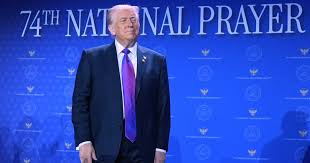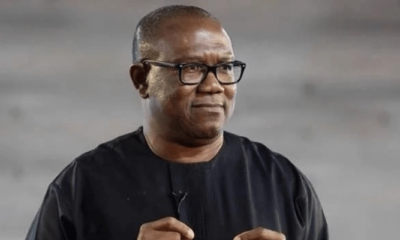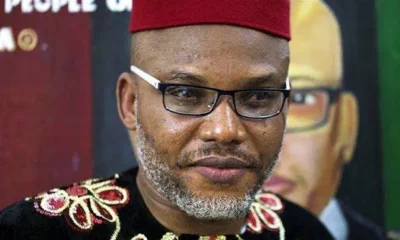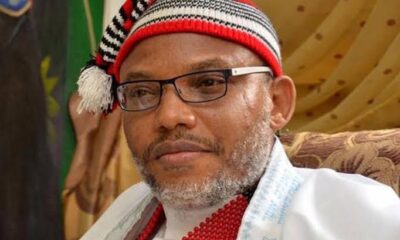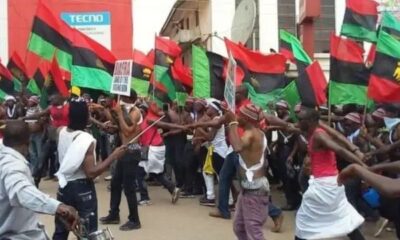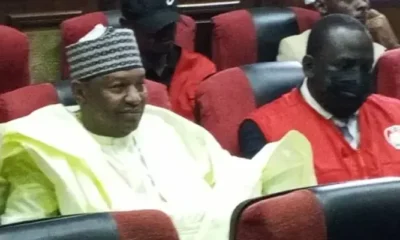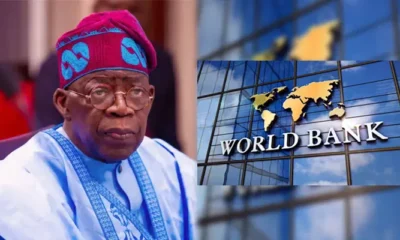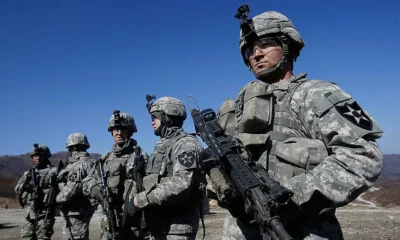News
Police Error in Killing Boko Haram Founder Fueled Nigeria’s Insecurity, Ex-Army Chief Reveals
Former Chief of Army Staff, Lt-Gen. Abdulrahman Dambazau (retd.), has blamed Nigeria’s prolonged insurgency on the 2009 police killing of Boko Haram founder Mohammed Yusuf,

- Former Chief of Army Staff, Lt-Gen. Abdulrahman Dambazau (retd.), has blamed Nigeria’s prolonged insurgency on the 2009 police killing of Boko Haram founder Mohammed Yusuf, calling it a fatal mistake that transformed a local dispute into a nationwide war.
A former Chief of Army Staff, Lt.-Gen. Abdulrahman Bello Dambazau (retd.), has blamed Nigeria’s prolonged insurgency on what he described as a “fatal policing failure” in 2009.
Speaking in Abuja at the 7th Annual Lecture of the Just Friends Club of Nigeria, Dambazau said the killing of Boko Haram founder Mohammed Yusuf after his arrest marked the decisive turning point that turned a local disturbance into a full-scale war against the Nigerian state.
According to him, Boko Haram began as a manageable local issue that spiraled out of control due to the unprofessional handling of Yusuf’s arrest and execution.
“I can tell you Boko Haram started as a local issue,” Dambazau explained. “It was triggered by a law on wearing crash helmets. Yusuf and his followers were handed over to the police after the army stormed their base in Maiduguri — but the police executed them in front of cameras. That single act gave the group propaganda fuel to recruit and radicalize.”
The former army chief said the incident exposed Nigeria’s weak policing culture and deepened the country’s internal security crisis, stressing that professional misconduct within the police allowed extremism to thrive.

He noted that Nigerian troops are now overstretched because they perform civilian policing duties, leaving national defense weakened.
“Soldiers are deployed for routine security tasks instead of border protection,” he said. “That is not sustainable.”
Beyond Boko Haram, Dambazau linked banditry and insecurity in the northwest to poverty, neglect, and poor governance. He cautioned that Nigeria “cannot rely on bullets alone,” calling for investments in education, intelligence networks, and community-based security systems.
DON’T MISS: China Throws Weight Behind Nigeria, Condemns Trump’s ‘Use of Force’ Warning
The retired general also criticized security budget mismanagement, saying many spending items are contractor-driven and not tied to operational needs.
“Funds are rarely released fully, and even when they are, much of it doesn’t reach where it matters. Real security means investing in citizens, not just weapons,” he said.
Other experts at the lecture echoed similar concerns.
Retired Air Vice Marshal Gbolahan Adekunle lamented the early retirement of trained officers, calling it a waste of expertise.
Security scholar Prof. Okey Ikechukwu said the gap between citizens and government weakens intelligence-gathering, while Fred Ohwahwa, President of the Just Friends Club, urged stronger domestic responses to insecurity to prevent foreign interference.

Security analysts have long argued that Yusuf’s extrajudicial killing in 2009 deepened radicalisation in Nigeria’s northeast, paving the way for more than a decade of violence, mass displacement, and thousands of deaths.



